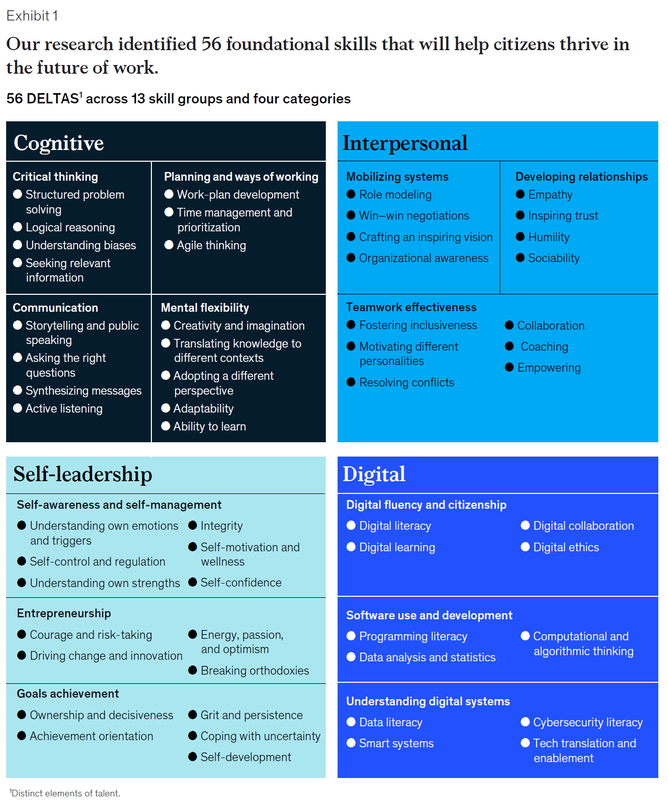The broadest term for this is experiential learning. Governments globally have recognized that education should evolve to teach the skills and competencies students will need - in addition to teaching the basic academic content. Here are two examples:
- Canada establishes a Pan Canadian Global Competencies Framework for Education: http://www.ibe.unesco.org/en/news/canada-establishes-pan-canadian-global-competencies-framework-education
- 21st Century Competencies - Singapore Ministry of Education: https://www.moe.gov.sg/education-in-sg/21st-century-competencies
In 2021, McKinsey published an article listing 56 foundational skills students should develop to prepare for their lives and careers. The article, titled "McKinsey: These are the skills you will need for the future of work," is available online at https://www.weforum.org/agenda/2021/06/defining-the-skills-citizens-will-need-in-the-future-world-of-work/. The introduction states:
"To future-proof citizens’ ability to work, they will require new skills—but which ones? A survey of 18,000 people in 15 countries suggests those that governments may wish to prioritize."
As a teacher, I continuously search for ways to help my students develop at least some of these skills while they are learning the academic material in my courses. Students whose prior education comprised almost exclusively lectures and exams become frustrated with the activities that require them to develop and employ these skills. By the end of a semester, some students finally get what they were doing and benefit from their work. Sadly, many students are so resistant that they don't understand. Yet all of these students will enter the workforce, where they will need these skills.
Understand why you teach the way you do so that you can explain it to your students.
Tell your students why you teach the way you do.
#ExperientialLearning #21stCenturyCompetencies #SoftSkills


 RSS Feed
RSS Feed